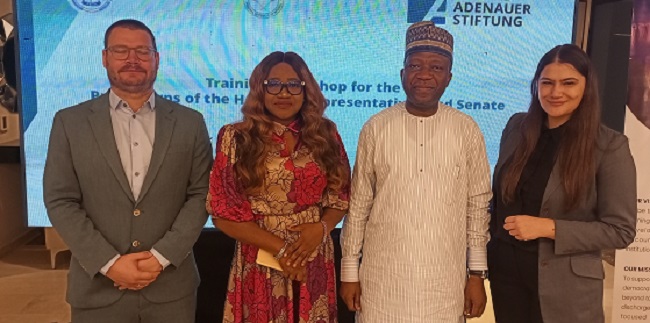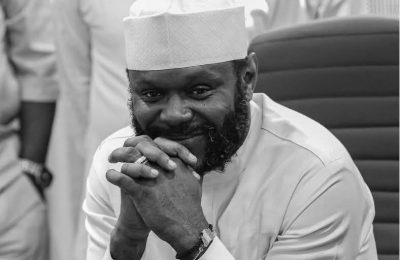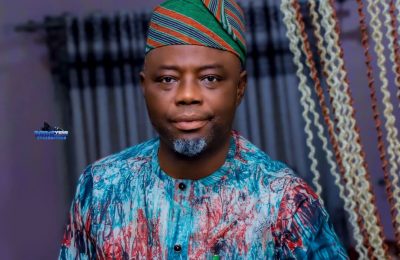
Director-General of the National Institute of Democratic and Legislative Studies (NILDS), Professor Olanrewaju Suleiman on Monday called on all security and enforcement agencies to closely study all the electoral offences in the Electoral Act, 2022 with a view to taking measures to arrest and prosecute offenders.
Professor Suleiman gave the charge in Abuja while declaring open a two-day capacity workshop for the House of Representatives and Senate Press Corps co-organised by the National Institute of Democratic and Legislative Studies (NILDS) and Konrad Adenauer Foundation.

He said: “As we draw closer to one of the most consequential elections in the history of our democracy, I consider this workshop for members of the Senate and House Press Corps critical to the very survival of our democracy. For the last two decades, we have taken the freedoms that come with democracy for granted. Indeed, it has become widely accepted that democracy has come to stay in Nigeria.”
He further lamented that: “Few weeks before the general elections, the very essence of our nationhood is being questioned. Nigerians are now asking whether a nation built on a fragile but optimistic foundation can long endure.
“Equally, there is a raging debate as to whether democracy has improved people’s lives all these years and if it has the answers to all the problems that confront our country today.
“Nigerians are headed to the polls on the heels of unprecedented economic hardships and insecurity that have upended the lives of millions.
“This is the context of this workshop. It is premised on the notion that the media is central to the survival of democracy, particularly in the way you frame and report on the myriad challenges we face.”
He observed that the “Electoral Act has robust provisions prohibiting campaigning or broadcasting based on the religious, tribal, or sectional reason for the purpose of promoting or opposing a particular political party or the election of a particular candidate (s.97).
“Section 91 prohibits campaigns or slogans that are tainted with abusive language that directly or indirectly injure religious, ethnic, tribal or sectional feelings.
“In addition, it prohibits using abusive, intemperate, slanderous or base language or insinuations or innuendoes that are likely to provoke violent reactions or emotions. It also prescribes penalties for breaches. Yet, no politician or party has been charged despite abundant evidence of blatant contraventions of these provisions by people from all parties.
“Additionally, the Electoral Act has a few provisions on the use of state media but, unfortunately, nothing concrete to regulate private media organisations.
“Nonetheless, Section 120(6) prohibits the dissemination of false results and prescribes a penalty of three years imprisonment.
“Since the commencement of the Fourth Republic, this electoral period and political campaigns have arguably been the most damaging to the core values of national cohesion and unity that Nigeria has been built on. Unfortunately, the media has often fed on this frenzy to click-bait, sell more and attract viewership.
“As a result, we have seen a rise in negative and misleading headlines and media interviews focused mainly on sensational personalities and headlines. The failure of the media to re-frame the conversation and re-direct politicians to issues that confront Nigeria has largely worsened the situation. TV and Radio Hosts enable the circus by prioritizing irrelevant and adverse topics.
“When politicians engage in misleading and divisive antics and rhetoric, the media has a solemn duty to call them out, condemn and re-direct the discourse on substantive issues. It is easy to get carried away and join the bandwagon of such lazy journalism.
“The outcomes, however, could be dire as we are presently experiencing in Nigeria. Negative reporting entrenches societal divisions, fuels hatred and violence, erodes government legitimacy, and sets up citizens against each other,” Professor Suleiman noted.
In her remarks, Chairman, House of Representatives Press Corps, Ms Grace Ike applauded the NILDS and Korad for consistently organizing training workshops for parliamentary correspondents as well as the growth and sustenance of Nigerian democracy.
She said: “To me, this is the most important training session we will be having with KAS because it dwells on two most critical issues in the history of our nation today. First, the 2023 general elections, which is largely considered to be a defining moment in the country.
“Some Analysts have even said the election is going to be a referendum on the continuous existence of Nigeria as a nation. So, there couldn’t have been a better time than now to hold this training workshop.
“As Political and Parliamentary Correspondents/Journalists, I believe this training will go a long way in preparing us ahead of this crucial national assignment of covering the 2023 general elections.
“Secondly, the redesign of the naira is a very topical issue today because it has affected Nigerians across the board, and choosing it as one of the topics to be discussed here is timely and quite commendable,” Ms Ike noted.
On her part, Resident Representative of the Konrad Adenauer Foundation in Nigeria, Marija Peran tasked Journalists with the need to ensure that political officeholders delivered on their mandates to the citizens.
“We look around the country, people are queuing everywhere, people are unsatisfied. So, there are hopes for the new government, the new presidency as well as the new Assemblies not only in the National Assembly but also at the state level and it is the media’s role to critically reflect on the work that they are doing and if they are delivering on their mandates.
“So, we encourage all Journalists nationwide to deliver on their mandates and to transparently, critically, constructively and professionally monitor the work of the politicians in the future,” she urged.
According to her, “It was very important to KAS that we get to do this training before the elections. We have been talking a lot about democratic consolidations and democratic dividends in the country, of course, all our focus is on the general elections has been since February last year.
“Now, with the general elections so close ahead and also the formation of the 10th Assembly, the relevance of your work becomes once more very apparent. And the Nigerian media is one of the most important institutions in the country. I’ve said it in the past and I will continue to say this, its relevance cannot be underestimated.
“In the light of some core historic elections or make or mar elections in Nigeria, it is critical to prepare those tasked with reporting about elections with relevant information as well as technical knowledge. And that’s why we gather here today and tomorrow.
“Your role in ensuring credible polls and we as parliamentary reporting in your Assembly is of utmost importance and your professional as well as a very critical reflection of the legislators’ work is needed and will also save the situation in the country, so much is at stake.
“And regarding the high turnover rate expected in the National Assembly, it becomes once more, even more necessary. So, we encourage you to stay as active, as proactive to stay as professional and as critical as you’ve been, even encourage you to do more so.
“The strong media coverage is needed to reflect the legislative work and as I just said there is much at stake because the next four years will shape of course the direction that the Nigerian democracy is leaning forth.
“So, we all know that there is no proper democracy without a proper functioning media, and one of the mandates of Konrad is to support all democratic institutions. And the media as the fourth realm of power is very important for us,” the KAS Representative noted.








